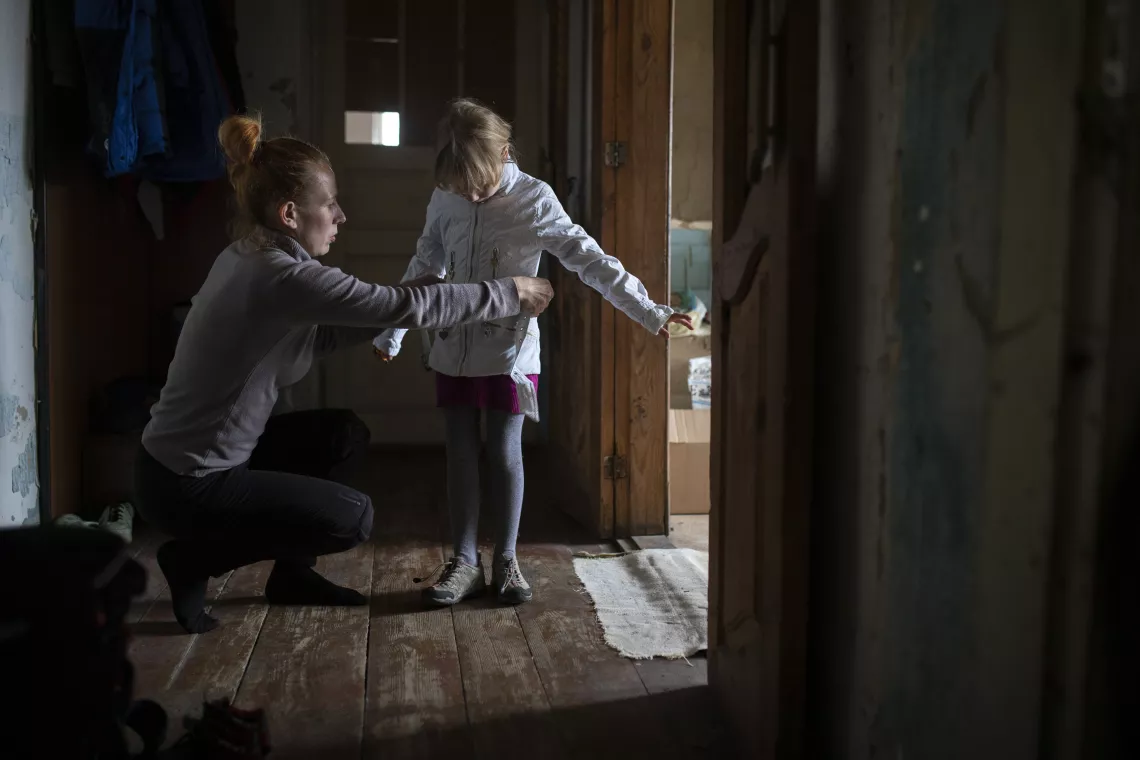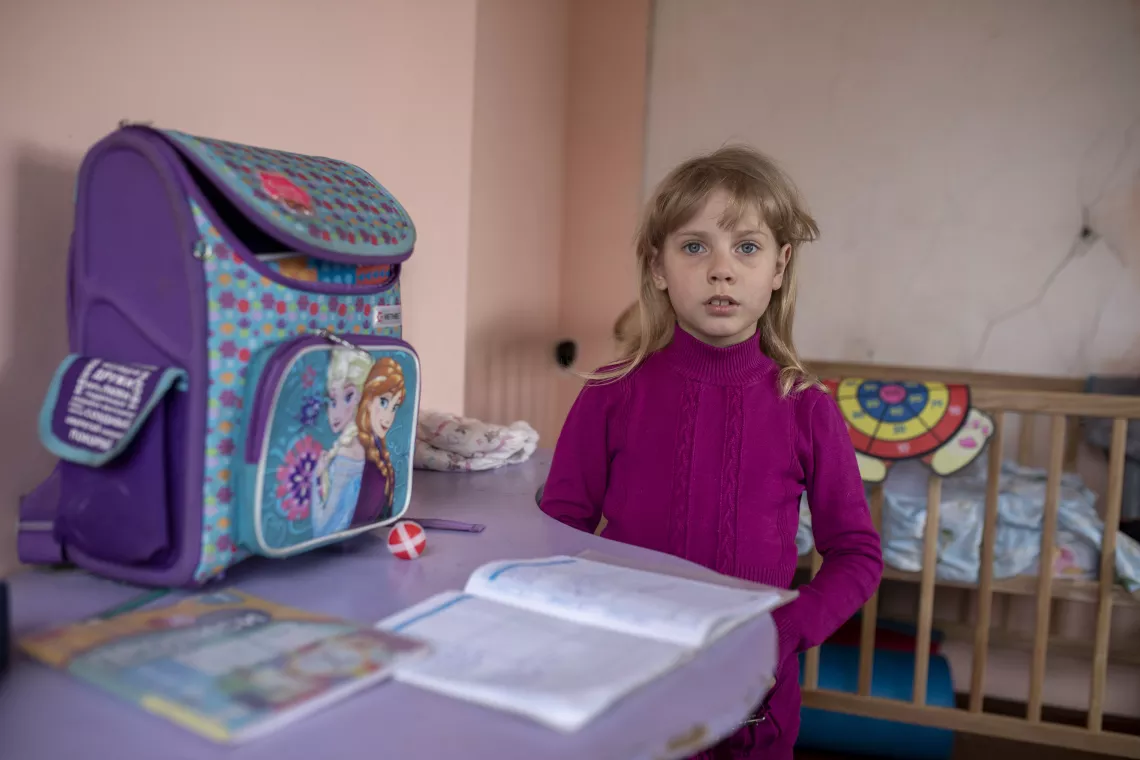The war took my school away
The story of Vika, a first-grade girl from Avdiivka

- Available in:
- Українська
- English
"I used to study in first grade in Avdiivka. And I liked it. But then the war started. And it took my school away," says Vika, a schoolgirl. She was born 8 years ago under continuous shellfire in eastern Ukraine. The first time she prepared to go to school, she did so with explosions in the background. Since the full-scale war started, she lost her home and opportunity for an education.
According to UNICEF, at least one in every six UNICEF-supported schools in eastern Ukraine has been damaged or destroyed since the start of the war. This underscores the impact of the war on children's life and their futures.

Two sunless months
Vika’s family lived in Avdiivka, just a few kilometers from the frontline, so her whole life is inextricably intertwined with hostilities and mine threats. A school in their town became the only place of stability and peace.
"I had friends there. I used to draw, play, and study there. My favorite subjects were math and Ukrainian," says Vika. She misses her school routine a lot - the lessons stopped in February.
Vika, her mom, younger sister and brother spent the whole of February and March in a basement in their old house. For almost two months, the children did not see the sun.

"We were always in the basement. We couldn't go outside, the only option was to come to the door for a bit of air. Everything was exploding. Any moment we could find ourselves under rubble," recalls Vika.
Vika's mother Hanna blocked the windows in her daughter's room with sandbags. The family was left with almost no food or medicine. In order to feed her kids, Hanna baked bread from semolina. She was forced to fetch water under shelling. "Last time, when I went to a store, a shelling began. I remember having goosebumps and trembling hands. I was scared for my children." Hanna recalls that after the full-scale war began, it became impossible to live in Avdiivka. Every day spent under attacks was dangerous for the children. In April, Hanna decided to flee.

While the family was waiting for an evacuation bus, Avdiivka got caught in the midst of an artillery attack. "We were so scared. We were literally crawling away from shelling. I was forced to save the life of my children and myself again, as I did in 2014," shares Hanna.
Hope my school was not destroyed
After a days-long trip, the family found shelter in a small village in Cherkasy oblast. Hanna's relatives gave the family a part of a house. Here, Hanna hopes to start a new peaceful life with her kids.
"I like it here, there is a lot of space and the weather is good. In summer, we will go to a local river to swim. And there is no gun fire," Vika says of her new house.

Vika has resumed reading and practicing cursive writing. She is about to go to a new school, where she hopes to meet new friends.

At the same time, Vika still misses her old school in Avdiivka. She is worried about her classmates and teachers, who remained back home. "I suppose some of my classmates are still hiding in basements, some of them have fled. I hope my school was not destroyed."
Vika's big blue eyes turn sad when she talks about her home. Due to unstable mobile service in Avdiivka, the family do not know what happened to Vika’s old school.
To cheer Vika up and make her adaptation to her new home easier, Vika's mother bought her a black puppy, who makes the girl smile a lot. "She is still a child and even during the war, she tries to stay positive." says Vika's mom as she embraces her.
UNICEF and partners work to reach as many children as possible with safe educational opportunities. The improvised classrooms were created on dozens of Kharkiv metro stations, where kids are forced to shelter and seek safety. Teachers, psychologists and sport coaches teach kids and play with them in these classrooms.
Moreover, the Ministry of Education and Science of Ukraine, with the support of UNICEF during the COVID-19 pandemic, developed the All-Ukrainian Online School platform for students in grades 5-11, which covers more than 80,000 displaced students within Ukraine. The online kindergarten NUMO regularly reaches hundreds of thousands of views.
A digital activity on explosive ordnance risk education (EORE) continues. The activity, produced in partnership with the State Emergency Services, has reached 8 million users online. To meet the needs of children leaving Ukraine, UNICEF supports governments and municipalities to involve children in national school systems and to develop alternative ways of learning, including digital learning.
UNICEF continues insisting that children and schools must be protected in line with international humanitarian law. Parties to the conflict must take measures to avoid the use of explosive weapons in populated areas and the military use of educational facilities.



